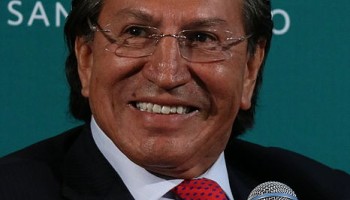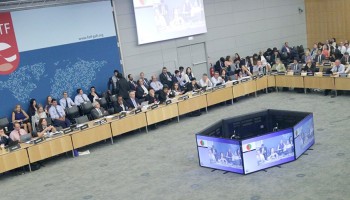NovoLine Resources L.P., registered in Edinburgh, was found to have used fake documents to win World Bank-funded tenders to supply Uzbekistan’s health ministry with medical supplies, including anesthesia and respiratory equipment.
The World Bank issued a notice in November recommending that NovoLine Resources L.P. “be declared ineligible to be awarded or otherwise benefit from a Bank-financed contract, financially or in any other manner.”
This came after accusations that it had, “in an attempt to mislead the relevant procurement authority, in order to obtain the award of the contract,” submitted a set of false financial statements and a false past equipment sales contract.
As a result, NovoLine has been banned from bidding in the World bank’s procurement processes for at least three and a half years.
A Scottish MP has called the reports “unsurprising,” according to Open Democracy.
“By continuing to turn a blind eye, the U.K. government is essentially complicit in facilitating this type of activity,” Glasgow Central MP Alison Thewliss reportedly said. “It has to get a grip on this problem and fast, if it cares at all about the U.K.’s reputation as an honest place to do business.”
This isn’t the first time an anonymous company registered in Scotland has been caught up in fraud in Uzbekistan. In 2018, the United Nations barred four anonymously owned Scottish firms from bidding for their contracts after they were found to have engaged in “fraud and collusion”.
The ultimate beneficial owners of these companies, like NovoLine, remain unknown, but experts say it’s more likely that they lie in Uzbekistan rather than the U.K.
“U.K. legal entities are a key feature of the corruption landscape in Uzbekistan,” Kristian Lasslett, professor of Criminology at Ulster University in Northern Ireland told Open Democracy. “They are used to conceal the identity of politically exposed persons, launder money, facilitate bribe payments, organise frauds, and access the global financial system.”
Uzbekistan ranks as the third most corrupt country in Eastern Europe and Central Asia on Transparency International’s 2020 Corruption Perception Index, and in the bottom 40 worldwide, ranking 146th out of 180 countries.






